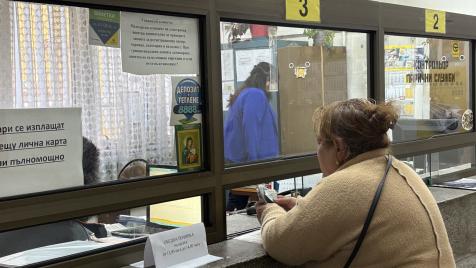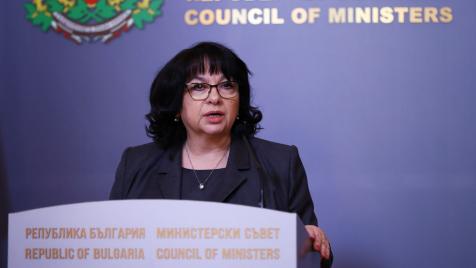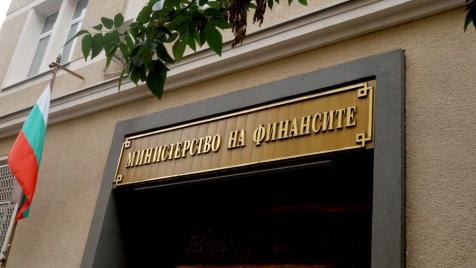Petkova to combat fake news about the euro with a large-scale campaign
According to the finance minister, the single European currency will bring financial stability and more investment to Bulgaria
© ECONOMIC.BG / BTA
Finance Minister Temenuzhka Petkova has once again vowed to combat fake news about the introduction of the euro in Bulgaria with an information campaign – one that is supposed to have started years ago but currently consists of only a few short videos, an information website, and irregular newsletters.
During a conference on Thursday, Petkova emphasized that the fight against misinformation requires “a very serious information campaign.”
Our government is ready for it (the campaign) and it is currently underway, but after June 4, I hope it will start in full force,” she added.
We would like to remind you that in early March this year, the finance minister announced that the Ministry of Finance was resuming the information campaign on the introduction of the euro in Bulgaria. At the time, Petkova pointed out that a “large-scale information campaign in the media” was being launched in connection with the accession process.
Even before this statement, short informational videos were broadcast on Bulgarian television, but apart from these, the website evroto.bg and some bulletins from the BNB, there are still no other informational materials. The lack of sufficient public awareness, for which BGN 10 million was allocated back in 2022, is the reason why the ministry, together with the BNB and other key institutions involved in the process, have been criticized for their lack of action.
In recent months, the central bank has launched a series of short information bulletins in the form of questions and answers about the euro, covering topics such as the conversion of accounts, bank loans and prices, changes in interest rates on loans and deposits, etc.
As was pointed out during the conference, the information campaign on the euro is late and the public is divided. Another issue is that television videos remain inaccessible to those who do not watch television or do not even have a television at home. According to some experts, the 15-second clips do not address the important issues, but focus on Bulgaria's place at the negotiating table (editor's note: this refers to the European Central Bank's decisions on interest rates).
What decisions and negotiations? What information does this give the average person? If I'm not a financier, what will I understand from this clip? We need to learn to communicate with people using very simple and understandable messages,” said Lilia Dimitrova, chair of the Association for Debt Management, at the time.
Bulgaria is ready for the euro on January 1, 2026
The minister responsible expressed absolute confidence that Bulgaria is ready to introduce the euro on January 1, 2026.
We have no doubts that Bulgaria's membership in the eurozone will bring enormous benefits to our country,” she added.
According to her, the adoption of the euro means financial and economic stability for the country, more investment, economic growth, and the completion of Bulgaria's full integration into the European Union.
The finance minister recalled that in February, our country met all the nominal convergence criteria, including those for the size of the budget deficit, inflation, and others.
On June 4, the European Central Bank and the European Commission are expected to publish their reports assessing Bulgaria's readiness.
I hope for a positive assessment, as all the prerequisites for this are in place," Petkova said.
Translated with DeepL.

 Simona Gotsova
Simona Gotsova 




